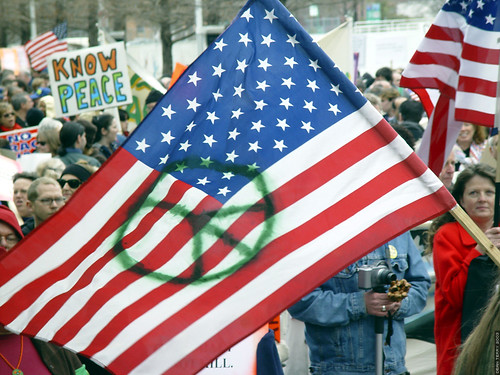The US flag with all its stripes and a few of its stars was adopted by a resolution of the Second Continental Congress in 1777. But today, overpriced textbooks and underpaid schoolteachers have sanitized most of our history and hidden the early controversies while fluffing half-truths, leaving us unclear about what that flag really stands for.
Fortunately, this is America and we’ve got movies to tell us what our teachers didn’t. Just read this quote from President Andrew Shepherd in American President:
America isn’t easy. America is advanced citizenship. You’ve got to want it bad, because it’s gonna put up a fight. It’s gonna say, “You want free speech? Let’s see you acknowledge a man whose words make your blood boil who is standing center stage and advocating at the top of his lungs that which you would spend a lifetime opposing at the top of yours. You want to claim this land as the ‘land of the free’? Then the symbol of your country cannot just be a flag. The symbol also has to be one of its citizens exercising his right to burn that flag in protest. Now show me that, defend that, celebrate that in your classrooms. Then you can stand up and sing about the ‘land of the free.’”
So I thank Ernie Miller for reminding us of Texas v. Johnson and US v. Eichman, a series of cases that established the legal right to burn a flag. That, my friends, is something worth celebrating on Flag Day.
